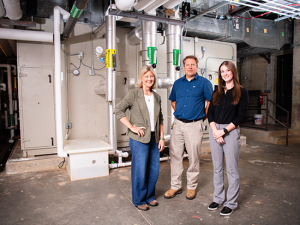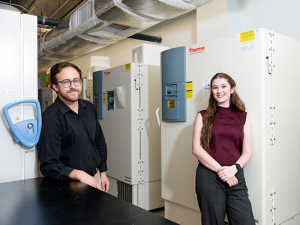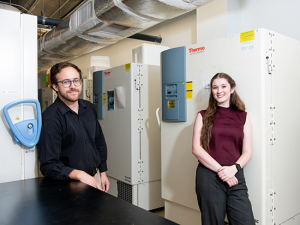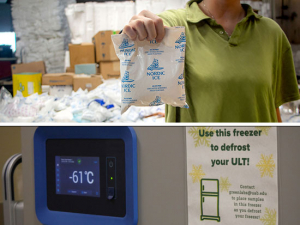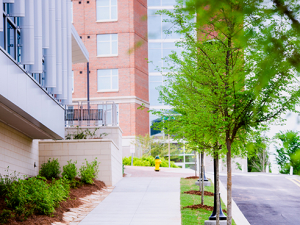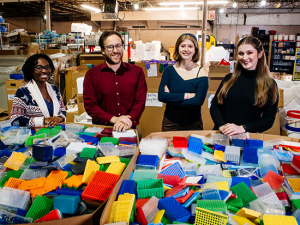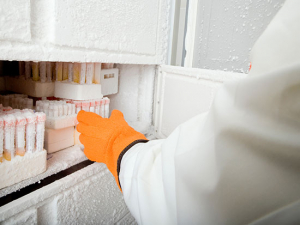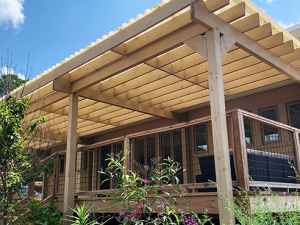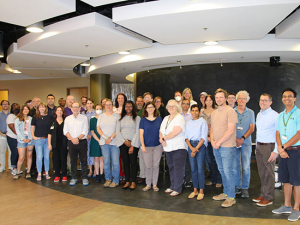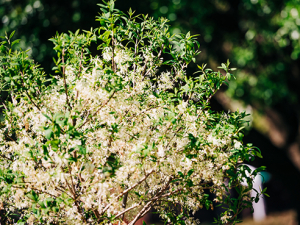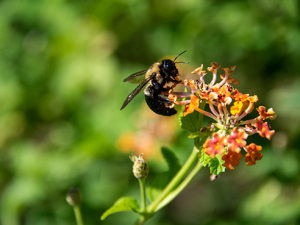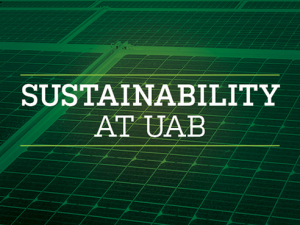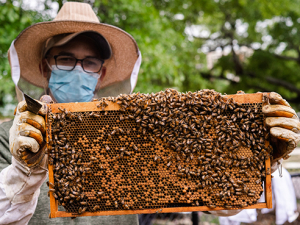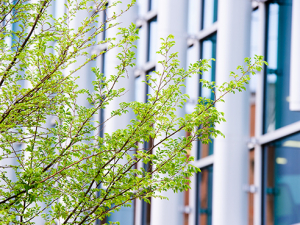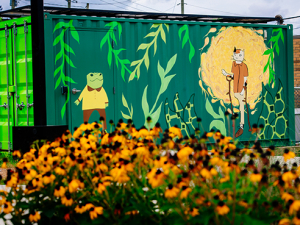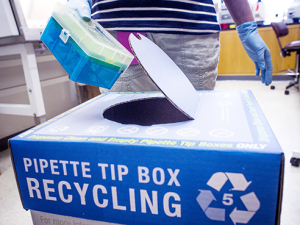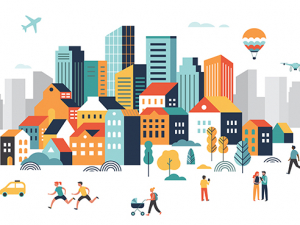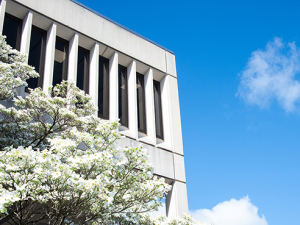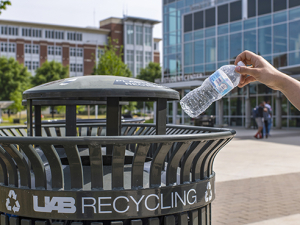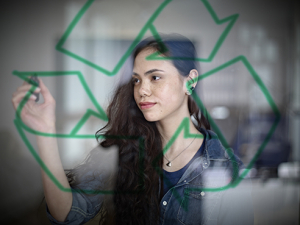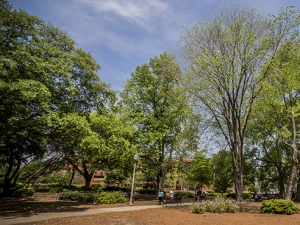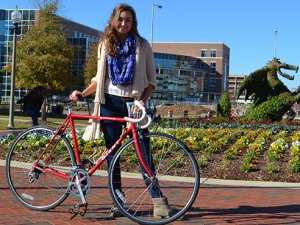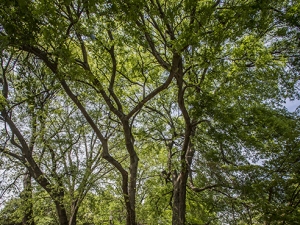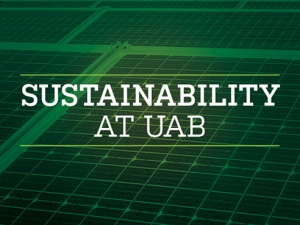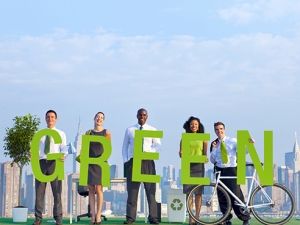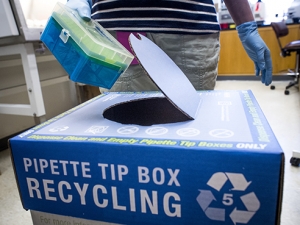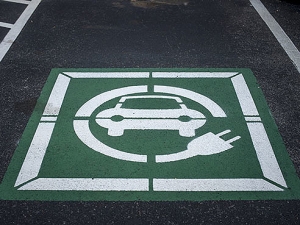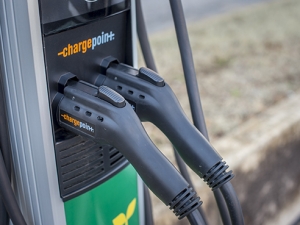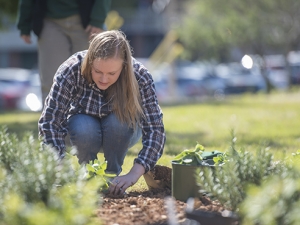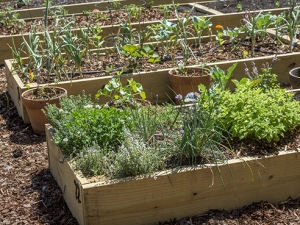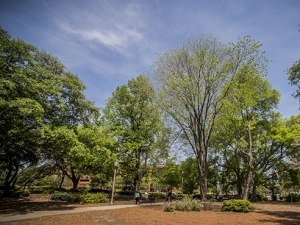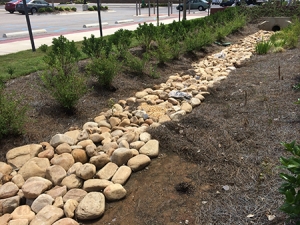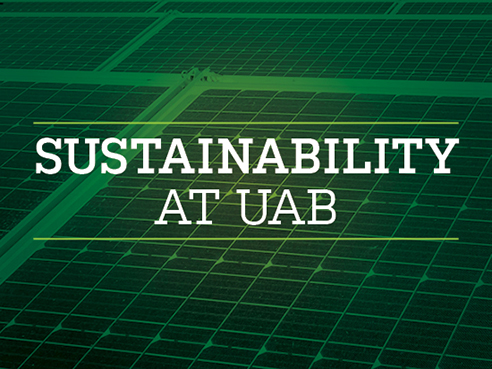 The new plan promises that by 2025, UAB will generate 20 percent of its electrical energy from renewable resources and reduce its greenhouse gas emissions by 20 percent — a committment that will affect not just campus, but Birmingham and beyond.UAB Sustainability is launching a new strategic plan to transform the university’s academic and medical enitities through education, operations and research and promote global thinking and local action — all by the year 2025.
The new plan promises that by 2025, UAB will generate 20 percent of its electrical energy from renewable resources and reduce its greenhouse gas emissions by 20 percent — a committment that will affect not just campus, but Birmingham and beyond.UAB Sustainability is launching a new strategic plan to transform the university’s academic and medical enitities through education, operations and research and promote global thinking and local action — all by the year 2025.
“UAB already is on a great track and a leader in sustainability in Birmingham,” said UAB Sustainability Manager Julie Price. “We want to build on the success we’ve achieved during the past several years and use it to jumpstart a new era on campus.”
Campus is no stranger to sustainable action: the Red Mountain Project enables faculty to integrate sustainability education into their curriculum, and there are more than 20 electric car-charging sites available for public, student and employee use. There’s also a pollinator garden, a thriving Green Labs program saving UAB hundreds of thousands per year in lab energy costs and an award-winning parking lot built for water pollution reduction.
But UAB Sustainability isn’t stopping there. The program formed more than a dozen working groups comprising 65-plus members and held public listening sessions on campus and in UAB Hospital, made presentations to shared-governance groups such as the Faculty Senate, Staff Council and Undergraduate Student Government Association and distributed an online survey to all campus and hospital employees and students.
The result, Price said, is this new strategic plan, which extends from campus and community engagement to grounds and waste management and describes ways in which the decisions made during the next six years will help make UAB an even more sustainable institution, consistent with the shared value of stewardship.
A strong start in 2019
While the strategic plan provides a roadmap for campus sustainability strategies through 2025, many of the program’s biggest initiatives will happen before the end of 2019, Price said:
- UAB will open its first LEED-certified building — the College of Arts and Sciences Building, which will save energy, water and resources and generate less waste.
-
50 trees will be planted for UAB’s 50th anniversary, in keeping with the university’s designation as a Tree Campus USA by the National Arbor Day Foundation.“We want to build on the success we’ve achieved during the past several years and use it to jumpstart a new era on campus.”
- The Green Labs program will induct its 200th member, meaning the savings to UAB could scale to $720,000 in the program’s third year.
- Two new programs will help improve engagement: Sustainability Ambassadors for employees interested in promoting and help implementing tailored sustainable programming in their units, and Student Sustainability Leaders to enable students to contribute to green efforts, share ideas and foster a culture of environmental friendliness.
- UAB’s Urban Multisource Microgrid will open at the corner of 11th Avenue South and 17th Street, featuring the UAB Surviv(AL) house from the 2017 Solar Decathlon competition. The house, powered exclusively by solar energy and batteries, will be a demo site for research and a tour site showcasing home efficiency, controls and renewable power.
“From showcasing UAB’s solar house to welcoming our 200th Green Lab participant in just three years, we are so excited for what the next year will bring,” Price said.
A future built on clean energy
UAB also is committing to larger, more extensive sustainability changes during the next six years, Price said, including one to 20 by ’25: a promise to generate 20 percent of its electrical energy from renewable resources and reduce its greenhouse gas emissions by 20 percent by 2025.
“When a large, influential entity like UAB makes sustainability a priority, that can make waves not just at the local and state level, but at the national or global level, too. We’re glad that making UAB a greener place to learn, work and live is an institutional priority.” |
“Sourcing renewable power and reducing emissions are good for local air quality, economic development, human and ecosystem health and combatting climate change,” Price said. “UAB is one of the largest electricity users in the state, and this goal is reflective of energy purchasing among large users, both public and private, around the world.”
Other initiatives will include reducing food waste, collaborating with municipal partners to offer work transportation options superior to drive-alone commuting, instituting better recycling and composting programs and leveraging the university’s $7 billion economic impact to encourage suppliers to use local and sustainable products and processes through contracts and specifications.
“When a large, influential entity like UAB makes sustainability a priority, that can make waves not just at the local and state level, but at the national or global level, too. We’re glad that making UAB a greener place to learn, work and live is an institutional priority,” Price said.

